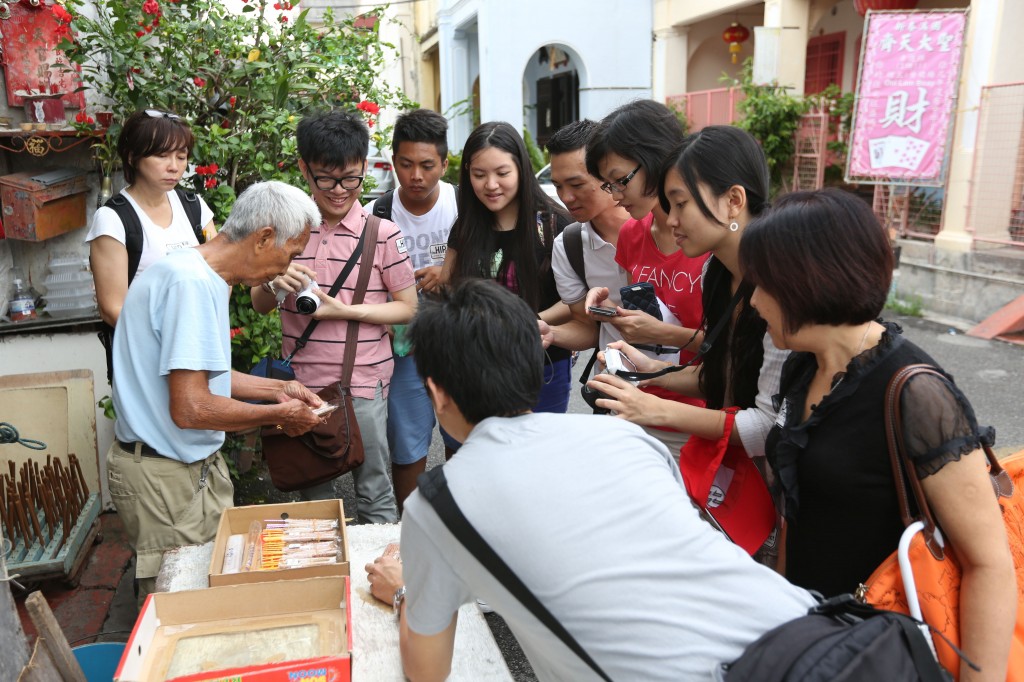By JC LAM
alltherage@thestar.com.my
OUR education system is partly to blame for the lack of interest in Malaysian heritage.
It is a sentiment shared by both Elizabeth Cardosa, executive director of Badan Warisan Malaysia (BWM) and Chen Yoke Pin, programme manager of Penang-based Arts-ED.
While students get their fill of history in school, Chen thinks the design of the syllabus isn’t exciting and interesting enough to create a lasting impression.
“They’re too national and not localised enough. There’s no connection to the youth’s immediate surroundings,” she explained. “Understanding heritage is not just about big landmarks in KL (for example), it’s also about the temple next to your school and the people in your state.”

Participants of the Heritage In Penang heritage tour visiting a traditional trader. Arts-ED encourages youth participation in heritage preservation through social media and the arts.
It is based on this understanding that Arts-ED – a non-profit organisation providing cultural education programs through art – and BWM feel the need to reinvent the way they connect with the younger generation.
“When we have programmes, young people give us feedback on the method of presentation that grabs their attention,” Cardosa said.
The approach they take is to provide youths a platform to appreciate and understand the heritage around them, instead of just teaching them the facts.
The Heritage In Penang (HIP) project was created by Arts-ED as a breakout from its traditional, ground-level approach. It does that by integrating social media with its campaign and getting youths to be creative through multiple art forms, including photo exhibitions and performance arts.
These programmes are about teaching the younger generation the effects their decisions have on the things they value, said Chen.
“We’re planting seeds, to make them appreciate and value the past, so they can make their own decisions in the future,” she explained.
To help recapture and engage the youth’s passion for built heritage, BWM will be hosting a fundraiser gala event themed the KUL BALL on June 20 at the Majestic Hotel in Kuala Lumpur.
“Some of the programmes we’re looking at leading up to the event include using Instagram,” Cardosa said. “That is the language in which young people communicate now. And that is also the language with which they validate things.”
Of course, all this is done simply to keep the dialogue going among today’s youth. After all, cultural changes start with people, so we’ll need them to strike the right conversations.
“A hundred years ago, what we now call heritage was the people’s culture then. So, what we call our culture now, will eventually be our heritage,” Chen added.
For more info on KUL BALL, call 03-2144 9273 or e-mail kulball@badanwarisan.org.my.


Tell us what you think!